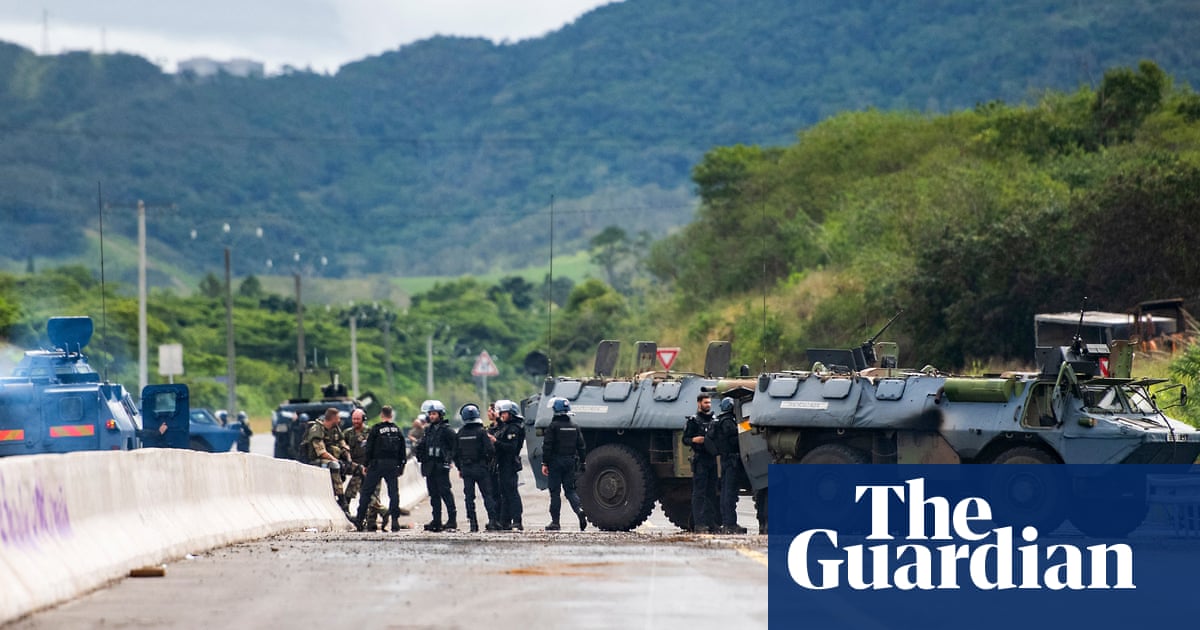
Residents of New Caledonia will go to the polls on Sunday in the third and final vote on independence from France, after a fraught campaign and amidst fears of violence.
This is the third referendum on whether New Caledonia should become independent from France – it is currently a French territory. In 2018, 43% voted for independence, a number that increased to 47% in the second vote in 2020.
The pro-independence Socialist Kanak Liberation Front (FLNKS) has called for indigenous Kanaks not to participate in the vote, arguing that Covid, which has disproportionately affected Kanak and Pasifika communities, has made pro-independence campaigning impossible, as entire villages observe customary mourning rites.
This time, participation will be key, in light of the call from FLNKS for non-participation. Last year, the participation rate was more than 85%.
There are fears that violence could follow Sunday’s vote. Over the past month, 2,000 French military officers have arrived in New Caledonia, with armoured vehicles and military equipment. On election day, the sale of alcohol is prohibited, as well as the sale of retail fuel and the transport of arms – such as guns traditionally used for hunting and machetes for chopping wood and coconuts – and ammunition is also forbidden.
“The most important thing is to go and vote, so that the result has an important political significance,” Thierry Santa, elected to the Congress of New Caledonia, and member of the pro-France coalition Les Voix du Non, told the Guardian at an event in the week leading up to the vote in the capital of Nouméa. “In any case, the result will be legally indisputable, but it has to be very strong politically.”
FLNKS leaders disagree, arguing that the result will be questionable if there is no full participation of Kanaks. FLNKS requested the vote be delayed, but France refused.
“It is simply impossible for us to campaign and organise this referendum because of all the mourning that we are undergoing,” said Johanyto Wamytan, a Kanak and pro-independence activist for the Union Calédonienne party.
“The custom of mourning is really crucial for the Kanak people. It is a time when the chiefs of clans can meet for several weeks to renew alliances and keep the custom alive. The tomb is closed and finished only after a year. I lost a very important cousin during this crisis. We could not do the custom. When I go to people to talk about the referendum as a politician, they refuse to receive me.”
Other Pacific leaders have backed calls for the vote to be delayed, including the Pacific Elders’ Voice, a group of former presidents and prime ministers of Pacific nations, who wrote a letter to Emmanuel Macron urging the French president “to respect the wishes of indigenous leaders in New Caledonia who have called for the deferral of the third independence referendum due to a spike in Covid-related deaths.”
A delegation made up of three Kanak leaders left for New York on Tuesday to express this opposition to the United Nations general assembly.
The French minister of overseas territories, Sébastien Lecornu, who arrived in the archipelago on Friday, said the Nouméa Agreement – the text which specifies the process of decolonisation – “comes to an end” and that Mondaywill open a “transition period” towards a new status for this territory.
Adolphe Wamytan, who lives in Saint-Louis, a predominantly Kanak village close to Nouméa said: “Faced with a result that we know in advance, there will be a reaction. It may be intense and brief, but there will be a reaction.”












